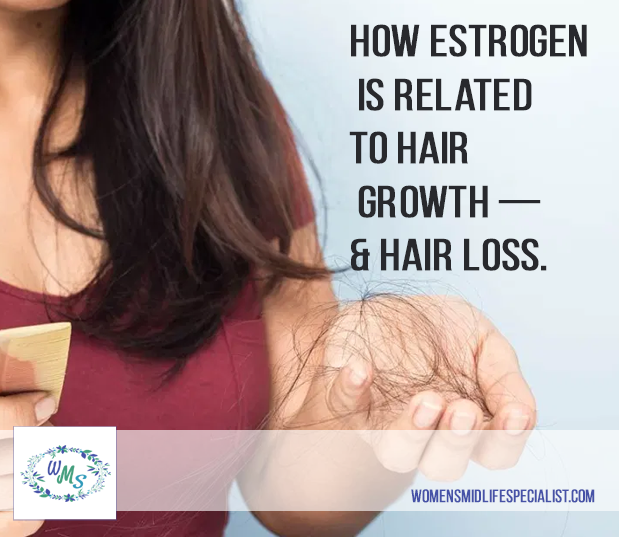How Estrogen is Related to Hair Growth — and Hair Loss.

The specific hormone responsible for hair loss is dihydrotestosterone (known as “DHT”), a hormone that your body produces as a byproduct of testosterone.
Hair loss during menopause is the result of a hormonal imbalance. Specifically, it’s related to a lowered production of estrogen and progesterone.
These hormones help hair grow faster and stay on the head for longer periods of time. When the levels of estrogen and progesterone drop, hair grows more slowly and becomes much thinner.
A decrease in these hormones also triggers an increase in the production of androgens, or a group of male hormones. Androgens shrink hair follicles, resulting in hair loss on the head.
In some cases, however, these hormones can cause more hair to grow on the face. This is why some menopausal women develop facial “peach fuzz” and small sprouts of hair on the chin.
For women going through menopause, the cause of hair loss is almost always related to hormonal changes. However, there are many other factors that can contribute to hair loss during menopause. These include extremely high levels of stress, illness, or a lack of certain nutrients.
As we sometimes need to be reminded ... PREVENTION is much easier than treatment! Eat healthy, take supplements, keep stress levels at bay, and as always ... keep your hormone levels balanced at youthful levels!
Ready to balance your hormones to those youthful levels?
All the resources you need from testing to finding the right bioidentical hormone cream are right here!
Learn More about ...
Hormone Testing CLICK HERE
Bioidentical Creams CLICK HERE


Leave a comment